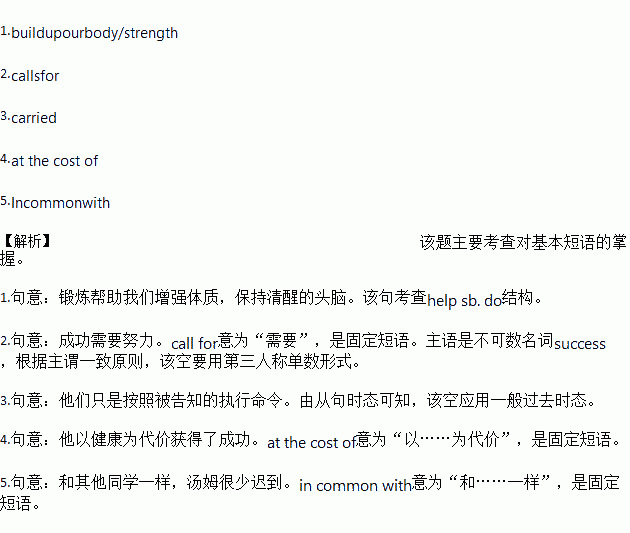题目内容
1.Taking exercise helps us ________ ________ ________ ________ and keep a clear mind. (增强体质)
2.Success ________ ________ (需要)hard work.
3.They just ________(执行)the order as they were told.
4.He succeeded ________ ________ ________ ________ his health. (以……为代价)
5.________ ________ ________(和……一样)other students, Tom is seldom late for school.
练习册系列答案
 名校课堂系列答案
名校课堂系列答案
相关题目

